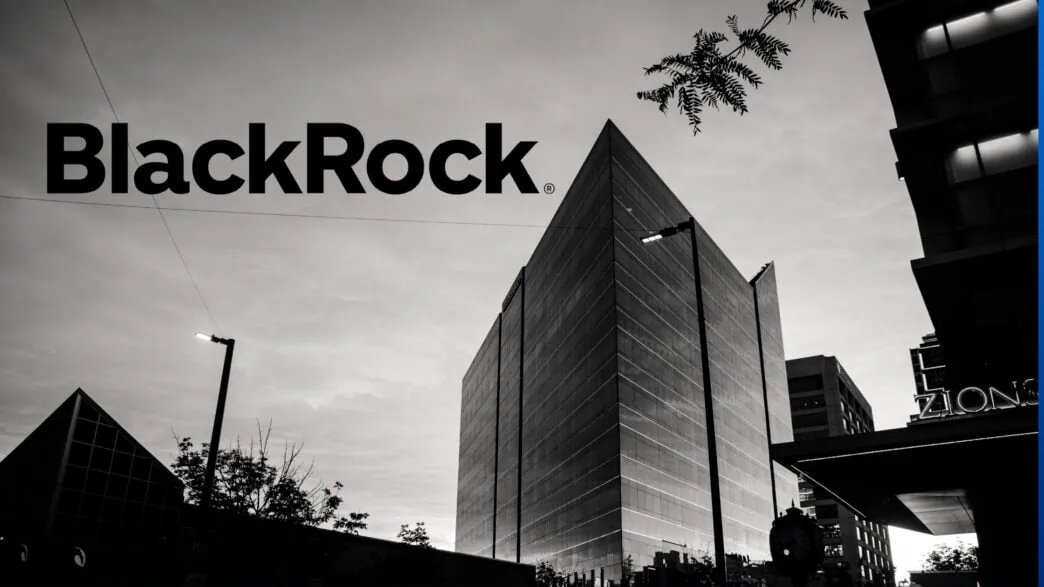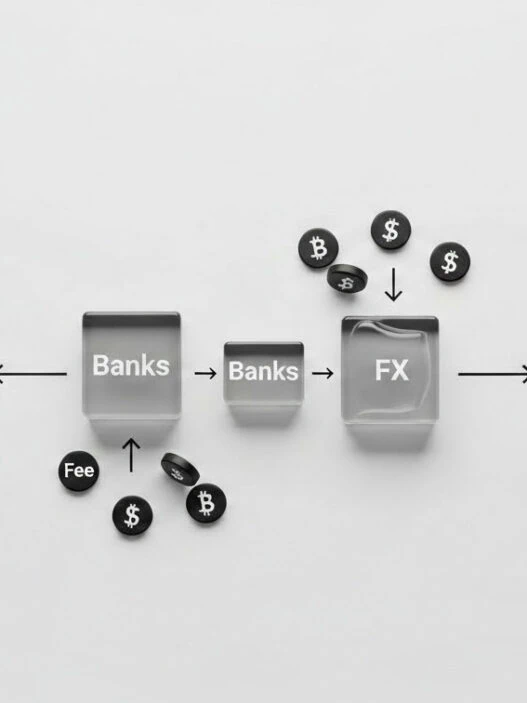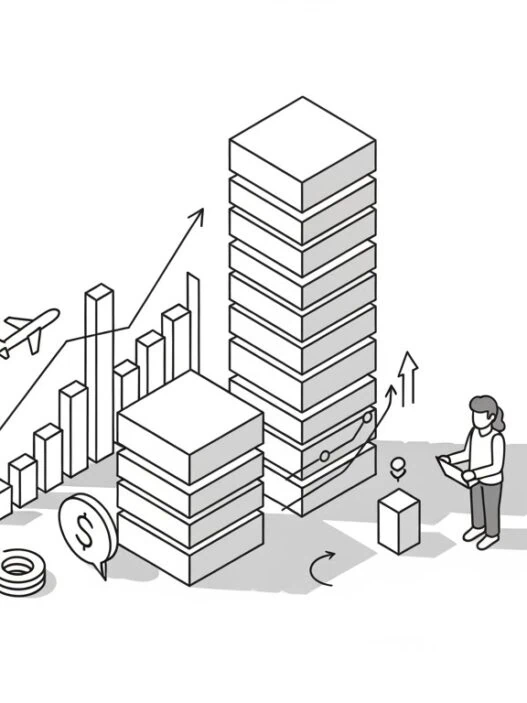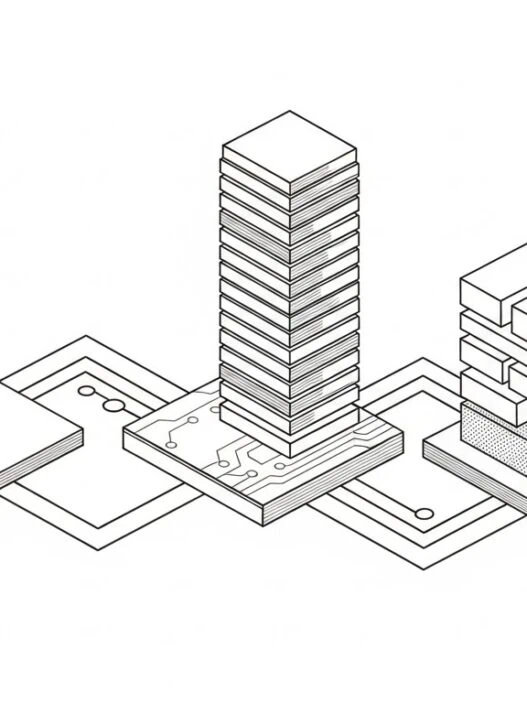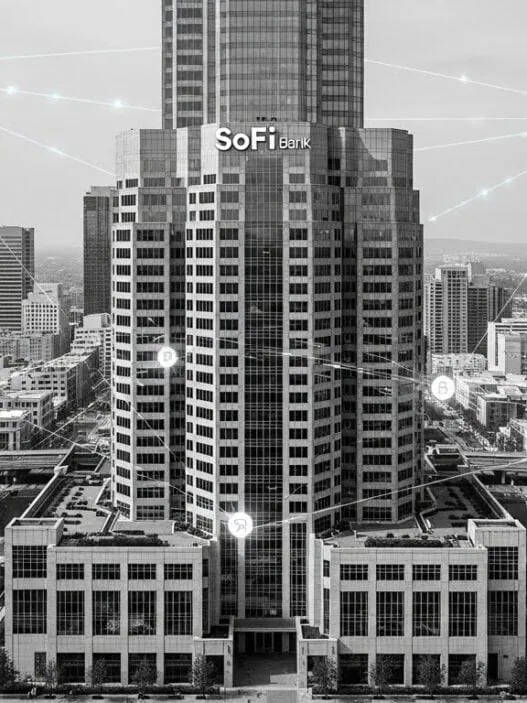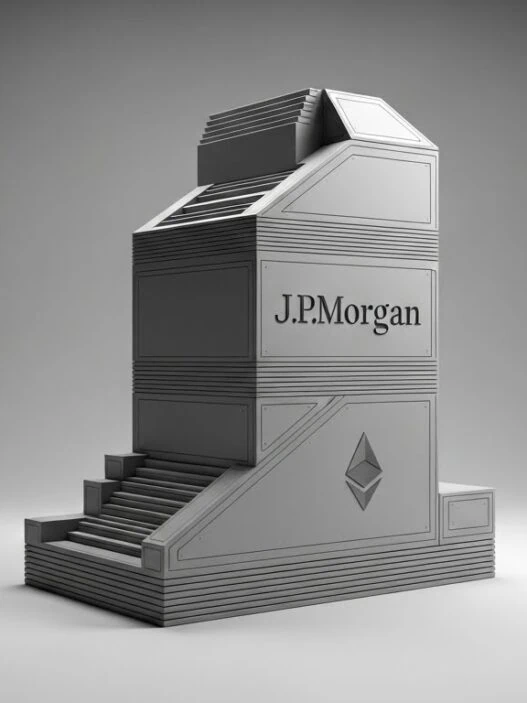BlackRock tokenized assets represent a revolutionary breakthrough in institutional finance, with the BUIDL Fund surpassing $1 billion in assets under management and establishing itself as the world’s largest tokenized Treasury fund. Understanding BlackRock tokenized assets through the BUIDL Fund provides insight into how traditional finance integrates with blockchain technology to create new investment opportunities.
The BlackRock tokenized assets initiative demonstrates Wall Street’s commitment to blockchain adoption, with BUIDL now accessible on seven blockchains including Ethereum, Aptos, Arbitrum, Avalanche, Optimism, Polygon, and Solana. This multi-chain expansion shows how BlackRock tokenized assets leverage distributed ledger technology to enhance liquidity, transparency, and operational efficiency.
BlackRock tokenized assets through BUIDL offer institutional investors direct exposure to U.S. Treasury-backed yields via blockchain infrastructure, combining traditional asset management expertise with cutting-edge financial technology. This convergence marks a significant milestone in the evolution of digital assets and institutional finance integration.
What Is BlackRock’s BUIDL Fund?

BlackRock tokenized assets are epitomized by the BlackRock USD Institutional Digital Liquidity Fund (BUIDL), which has surpassed $1 billion in assets under management, marking a significant milestone in the growth of tokenization. The BUIDL Fund represents the world’s first major asset manager to successfully tokenize treasury assets at institutional scale.
Fund Structure and Investment Strategy
BUIDL invests 100% of its total assets in “dollar-like” cash assets including cash, short-term U.S. government bonds, and overnight repurchase agreements, ensuring each BUIDL token maintains a stable value of $1. This conservative investment approach provides capital preservation while generating yield through treasury securities.
The fund operates as a tokenized money market fund issued pursuant to Rule 506(c) of the Securities Act of 1933 and Section 3(c) of the Investment Company Act of 1940, ensuring full regulatory compliance while leveraging blockchain technology for enhanced operational efficiency.
Yield and Distribution Mechanism
BUIDL provides token holders an APY of approximately 4.5%, managed at fees ranging between 0.20% and 0.50%. The fund distributes interest through a monthly rebase mechanism, directly “airdropping” the accrued dividends into investors’ wallet accounts in the form of new tokens.
According to latest data, BUIDL has distributed over $17.2 million in dividends since its launch in March 2024, demonstrating consistent yield generation for institutional investors. This transparent distribution mechanism leverages blockchain technology to automate dividend payments without traditional banking intermediaries.
Tokenization Technology and Infrastructure
BlackRock tokenized assets utilize Securitize’s institutional-grade tokenization platform, which serves as the technology platform for digitizing fund units, the transfer agent for issuing and redeeming funds, and the compliance gateway responsible for investor onboarding. This comprehensive infrastructure ensures regulatory compliance while enabling blockchain functionality.
The tokenization process creates ERC-20 compatible tokens that are fully backed by U.S. Treasury bills, cash, and repurchase agreements, with each token maintaining a stable $1.00 net asset value. This structure provides institutional investors with familiar treasury exposure through innovative blockchain delivery mechanisms.
Regulatory Framework and Compliance
BUIDL operates under comprehensive regulatory oversight, with Bank of New York Mellon serving as BUIDL’s cash and securities custodian and multiple crypto custodians including Anchorage Digital, BitGo, Copper, and Fireblocks supporting digital asset custody requirements.
The fund’s compliance framework ensures that every transaction adheres to legal standards, providing a trusted framework that has attracted ultra-high-net-worth individuals, demonstrating institutional confidence in BlackRock tokenized assets compliance and security standards.
How to Invest in BlackRock Tokenized Assets

Investing in BlackRock tokenized assets requires meeting specific qualification criteria and following a structured onboarding process designed for institutional and high-net-worth investors. Understanding these requirements ensures successful access to BUIDL Fund opportunities.
Investor Qualification Requirements
BlackRock tokenized assets maintain strict investor eligibility standards, with participation limited to “qualified purchasers”: individuals or family offices must possess at least $5 million in investable assets. This threshold ensures the fund serves sophisticated institutional investors familiar with complex investment structures.
For institutional investors, the minimum investment threshold increases to $25 million USD, reflecting the fund’s focus on large-scale institutional capital allocation. These requirements align with traditional private placement standards while leveraging blockchain technology for enhanced operational efficiency.
Minimum Investment Thresholds
Investment Minimums:
- Individual investors: $5 million USD
- Institutional investors: $25 million USD
- Redemption minimum: $250,000
The minimum subscription is $5 million USDC, requiring investors to fund subscriptions using USD Coin rather than traditional fiat currency transfers. This approach streamlines the investment process while maintaining regulatory compliance through established stablecoin infrastructure.
KYC and Compliance Process
BlackRock tokenized assets investment requires comprehensive Know Your Customer (KYC) verification through Securitize’s institutional onboarding platform. Investors must pass Securitize Markets’ KYC/AML review and be whitelisted before gaining access to BUIDL tokens.
The compliance process includes:
- Identity verification and documentation
- Accredited investor status confirmation
- Anti-money laundering (AML) screening
- Qualified purchaser certification
- Wallet address whitelisting for transfers
Transfers are limited to wallets that pass know-your-customer (KYC) checks and appear on an approved whitelist, ensuring all token movements comply with securities regulations while maintaining blockchain transparency.
Investment Platforms and Access Points
Primary Distribution Channel: The only distribution channel at the time of issuance is Securitize Markets, LLC, which is an SEC-registered securities broker. This exclusive distribution model ensures regulatory compliance while providing institutional-grade service standards.
Supported Custody Solutions: Qualified investors can utilize multiple custody options including:
- Anchorage Digital Bank
- BitGo institutional custody
- Coinbase Custody
- Fireblocks enterprise platform
- Copper digital asset custody
Investment Process Steps
Step 1: Qualification Verification Complete Securitize’s institutional investor qualification process, providing documentation for accredited investor status and minimum asset requirements.
Step 2: KYC/AML Compliance Submit identity verification documents and complete anti-money laundering screening through Securitize’s compliance platform.
Step 3: Wallet Setup and Whitelisting Establish approved digital wallet infrastructure through qualified custodians and complete whitelisting process for token transfers.
Step 4: USDC Funding Fund investment account with required USDC minimum amounts through qualified banking or digital asset exchange relationships.
Step 5: Token Subscription Execute BUIDL token purchase through Securitize platform, receiving blockchain-based confirmation of ownership and dividend eligibility.
For detailed investment guidance on BlackRock tokenized assets, prospective investors should consult with qualified financial advisors familiar with digital asset securities and regulatory requirements.
BUIDL vs Traditional Money Market Funds
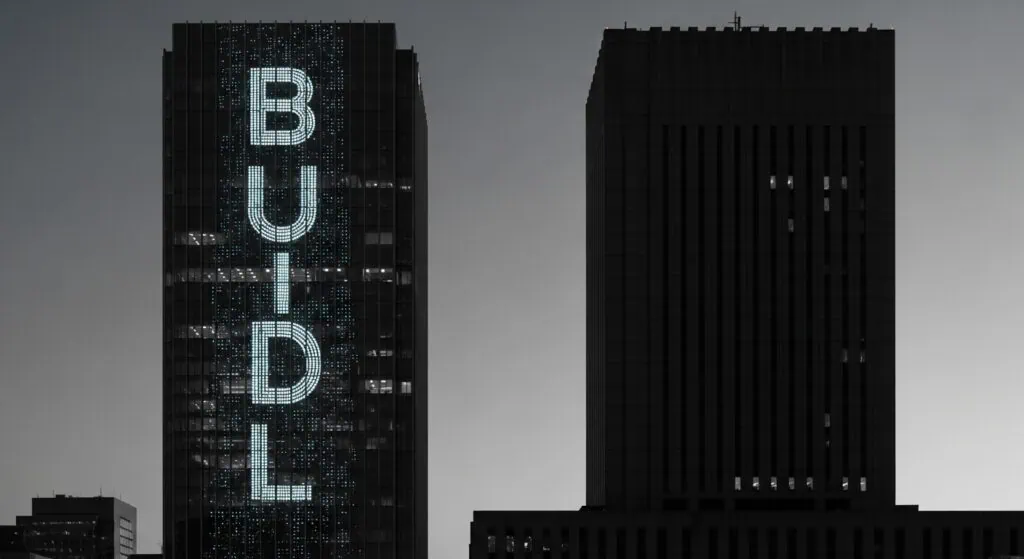
BlackRock tokenized assets through BUIDL offer significant operational advantages compared to traditional money market funds, leveraging blockchain technology to enhance liquidity, transparency, and settlement efficiency while maintaining comparable yield and safety profiles.
Operational Efficiency Comparison
| Feature | Traditional MMF | BlackRock BUIDL |
|---|---|---|
| Settlement Speed | 2-3 business days | Instant (24/7/365) |
| Transparency | Monthly reports | Real-time on-chain |
| Operating Hours | Business hours only | 24/7/365 availability |
| Minimum Investment | $1,000-$10,000 | $5,000,000 |
| Yield Distribution | Monthly/quarterly | Monthly via rebase |
| Transfer Restrictions | Traditional rails | Whitelisted wallets only |
| Custody Options | Traditional banks | Digital + traditional |
| Cross-border Access | Complex procedures | Blockchain native |
Settlement and Liquidity Advantages
BlackRock tokenized assets provide 24/7/365 fund issuance/redemption process in fiat USD, with instant settlement and real-time redemption features highly desired by traditional financial institutions. This represents a significant improvement over traditional money market funds requiring 2-3 business days for settlement.
The blockchain infrastructure enables real-time pricing and settlement 24/7, eliminating market and counterparty risks through efficient atomic settlement. This operational efficiency provides institutional investors with enhanced capital flexibility and risk management capabilities.
Transparency and Reporting
Traditional money market funds provide transparency through periodic reports and statements, while BlackRock tokenized assets offer real-time visibility through blockchain transactions. Every token movement and transaction is public and verifiable on the blockchain, providing unprecedented transparency for institutional compliance and risk management.
This enhanced transparency enables real-time portfolio monitoring, automated compliance reporting, and immediate verification of fund holdings without waiting for traditional reporting cycles.
Yield and Fee Structure Comparison
BlackRock tokenized assets maintain competitive pricing with fees ranging between 0.20% and 0.50%, comparable to institutional money market fund fee structures. The APY of approximately 4.5% aligns with current treasury yields while providing blockchain-enhanced operational benefits.
The fees associated with the share class on Avalanche are notably lower than some of the other blockchains on which the Fund is offered, demonstrating how multi-chain deployment can optimize cost structures for institutional investors.
Regulatory and Compliance Framework
Both traditional money market funds and BlackRock tokenized assets operate under strict regulatory oversight, but BUIDL leverages blockchain technology while maintaining full SEC compliance. The fund is registered with the U.S. SEC, operates under U.S. securities law, and restricts access to accredited and qualified purchasers.
The regulatory framework ensures institutional investors receive equivalent protections while benefiting from blockchain operational advantages including instant settlement, enhanced transparency, and automated compliance monitoring.
Collateral and DeFi Integration
BlackRock tokenized assets offer unique advantages through blockchain integration, with BUIDL now accepted as collateral on two of the most active crypto exchanges in the world: Crypto.com and Deribit. This functionality enables institutional investors to utilize treasury-backed assets as collateral for derivatives trading and other financial strategies.
Traditional money market funds lack this collateral flexibility, requiring complex procedures to utilize fund holdings for trading or risk management purposes. BlackRock tokenized assets provide instant collateral posting capabilities while maintaining treasury asset backing and yield generation.
Blockchain Infrastructure and Multi-Chain Access

BlackRock tokenized assets leverage a sophisticated multi-chain infrastructure strategy, with BUIDL now accessible on seven blockchains including Ethereum, Aptos, Arbitrum, Avalanche, Optimism, Polygon, and Solana. This comprehensive blockchain deployment demonstrates institutional commitment to distributed ledger technology optimization.
Multi-Chain Deployment Strategy
The expansion beyond Ethereum reflects BlackRock tokenized assets strategy to optimize for different blockchain strengths:
Ethereum: Primary deployment with roughly 825 million tokens across two main contracts, hosting around $267 million in combined token value, establishing Ethereum as the dominant platform for institutional holdings.
Solana: Recently expanded to Solana—a blockchain known for its speed, scalability, and cost efficiency, targeting institutional investors requiring high-throughput trading and settlement capabilities.
Layer 2 Solutions: Deployment on Arbitrum, Optimism, and Polygon provides cost-effective alternatives for institutional investors while maintaining Ethereum security guarantees.
Cross-Chain Interoperability
Cross-chain interoperability is enabled by Wormhole to facilitate seamless and secure token transfers between different blockchain networks. This infrastructure allows institutional investors to optimize blockchain selection based on specific operational requirements including transaction costs, settlement speed, and liquidity access.
The multi-chain approach enables BlackRock tokenized assets to serve diverse institutional needs while maintaining unified fund management and regulatory compliance across all supported blockchains.
Institutional Blockchain Adoption
BlackRock tokenized assets multi-chain strategy reflects broader institutional blockchain adoption trends, with the partnership between BlackRock and Securitize exemplifying a growing collaboration between traditional asset managers and tech firms, a trend that has surged by 30% since 2023.
This institutional infrastructure development positions BlackRock tokenized assets to capitalize on the market projected to reach $10 trillion in tokenized assets by 2030, demonstrating the scale of opportunity in blockchain-based institutional finance.
Risks and Investment Considerations
BlackRock tokenized assets carry unique risk profiles combining traditional money market fund risks with blockchain technology and regulatory considerations. Understanding these risk factors enables informed investment decisions for institutional investors considering BUIDL Fund allocation.
Regulatory and Compliance Risks
BlackRock tokenized assets operate in an evolving regulatory environment with potential changes affecting operational structure and investor access. The intensified regulatory scrutiny following a major tokenized fund scandal in 2024 has underscored the importance of compliance, highlighting ongoing regulatory oversight requirements.
Future regulatory changes could impact:
- Investor qualification requirements
- Operational procedures and compliance costs
- Cross-border accessibility restrictions
- Blockchain infrastructure requirements
- Tax treatment and reporting obligations
The regulatory landscape continues evolving as authorities develop frameworks for tokenized securities, potentially affecting BlackRock tokenized assets operational flexibility and market access.
Technology and Blockchain Risks
Blockchain infrastructure risks include smart contract vulnerabilities, network congestion, and potential technical failures affecting token transfers or redemptions. While BlackRock tokenized assets utilize established blockchain networks, technology risks remain inherent to digital asset operations.
Technical Risk Factors:
- Smart contract security vulnerabilities
- Blockchain network downtime or congestion
- Cross-chain bridge security and reliability
- Wallet security and key management
- Custody platform technical failures
Because BUIDL is a security token, transfers are restricted to whitelisted wallets that pass KYC/AML checks, which limits liquidity compared to open-market stablecoins, creating operational constraints for institutional investors requiring maximum liquidity flexibility.
Market and Concentration Risks
BlackRock tokenized assets face concentration risk with only 18 tokenholders owning BUIDL tokens, with the largest holder owning nearly $178 million, which constitutes more than 33% of the entire fund’s supply. This concentration creates potential volatility if large holders execute significant redemptions.
Market risks include:
- Interest rate risk affecting underlying treasury securities
- Liquidity risk during market stress periods
- Counterparty risk with service providers and custodians
- Regulatory risk affecting tokenized asset markets
- Technology adoption risk and market acceptance
Operational and Custody Risks
BlackRock tokenized assets utilize multiple custody solutions creating operational complexity and potential risk concentration. While diversified custody arrangements provide redundancy, they also create multiple operational dependencies and potential failure points.
Custody Risk Factors:
- Digital asset custody security breaches
- Operational failures at custody providers
- Key management and recovery procedures
- Insurance coverage limitations
- Cross-border custody complications
Investment Threshold and Accessibility Risks
The minimum subscription of $5 million USDC creates accessibility limitations affecting investor diversification and market depth. High investment thresholds may limit market development and secondary market liquidity compared to traditional money market funds.
Additionally, BUIDL is a Rule 506c issuance, which restricts it to U.S. accredited investors, limiting global accessibility and potentially constraining market growth compared to unrestricted investment products.
For comprehensive risk management strategies related to BlackRock tokenized assets, investors should consult with qualified financial advisors and review all offering documentation before making investment decisions.
Institutional Adoption and Market Impact

BlackRock tokenized assets have catalyzed significant institutional adoption across traditional finance and digital asset markets, with BUIDL serving as a building block for multiple yield-generating offerings and increasingly used as collateral on trading platforms.
Major Institutional Participants
BlackRock tokenized assets attract sophisticated institutional investors, with Ethena’s $200 million allocation demonstrating significant institutional confidence. Ondo Finance has shifted $95 million into the BUIDL fund and makes up 38% of its value, showing how traditional asset managers leverage BlackRock tokenized assets for enhanced products.
Key institutional participants include:
- Ethena Labs (yield-generating stablecoin protocols)
- Ondo Finance (tokenized asset management)
- Flux Finance (DeFi lending protocols)
- Institutional trading platforms and prime brokers
- Qualified family offices and asset managers
DeFi Integration and Ecosystem Development
BlackRock tokenized assets enable traditional finance integration with decentralized finance protocols, with Aave proposing a new GHO Stability Module (GSM) based on BlackRock’s tokenized fund. This integration demonstrates how institutional-grade assets can enhance DeFi protocol stability and yield generation.
BUIDL is a key reserve asset for Ethena’s yield-generating USDtb token, which now has a $540 million supply, backed by USDC and USDT stablecoins and some $320 million worth of BUIDL tokens, showing significant ecosystem adoption.
Trading Platform and Collateral Adoption
BlackRock tokenized assets gain acceptance as institutional-grade collateral, with BUIDL now accepted as collateral on Crypto.com and Deribit, cementing its role as a foundational building block in on-chain finance. This adoption enables institutional investors to utilize treasury-backed assets for derivatives trading and risk management.
FalconX and Hidden Road, two major crypto prime brokers, already permit their hedge fund clients to use BUIDL as collateral, demonstrating broad institutional infrastructure support for BlackRock tokenized assets.
Market Growth and Competitive Landscape
BlackRock tokenized assets growth demonstrates institutional confidence in tokenized treasury markets, with global on-chain RWAs reaching $18.34 billion, an increase of over 18% in 30 days. This growth trajectory positions BlackRock tokenized assets at the forefront of institutional blockchain adoption.
Competitive analysis shows Franklin Templeton’s FOBXX digital money market fund took two years to reach $270 million in assets under management, while BUIDL attracted $245 million in assets from seven investors in one week, demonstrating accelerated institutional adoption of BlackRock tokenized assets.
Regulatory Validation and Industry Impact
BlackRock tokenized assets success provides regulatory validation for tokenized securities, with the U.S. Securities and Exchange Commission’s approval of frameworks for tokenized securities earlier this year paving the way for broader adoption. This regulatory clarity supports continued institutional investment in blockchain-based financial products.
The institutional adoption of BlackRock tokenized assets signals broader Wall Street acceptance of blockchain technology for operational efficiency and product innovation, potentially accelerating similar initiatives across major asset managers and financial institutions.
Aviation Industry Applications
BlackRock tokenized assets offer unique opportunities for aviation industry financing, fleet management, and operational efficiency through blockchain-based treasury management and liquidity optimization. The aviation sector’s capital-intensive nature and global operations align well with tokenized asset advantages.
Aircraft Financing and Fleet Management
BlackRock tokenized assets provide aviation companies with enhanced treasury management capabilities for aircraft financing and working capital optimization. The 24/7 trading and transparent ownership records enable more efficient capital allocation for aircraft purchases, lease payments, and operational expenses.
Aviation finance companies can utilize BlackRock tokenized assets as high-quality liquid assets (HQLA) for regulatory capital requirements while maintaining yield generation through treasury backing. The blockchain infrastructure facilitates instant settlement for aircraft transactions and international payments.
Private Aviation and Charter Operations
Private aviation operators can leverage BlackRock tokenized assets for enhanced customer payment processing and operational efficiency. Charter companies handling large deposits and advance payments benefit from the instant settlement and real-time redemption features while earning yield on customer funds.
The global nature of private aviation operations aligns with BlackRock tokenized assets multi-chain accessibility, enabling seamless international transactions and regulatory compliance across multiple jurisdictions.
Aircraft Leasing and Asset Management
Aircraft leasing companies can optimize capital efficiency through BlackRock tokenized assets collateral capabilities, with BUIDL accepted as collateral on major trading platforms enabling enhanced risk management and funding strategies.
The transparency and real-time settlement capabilities support more efficient aircraft leasing structures, automated lease payments, and enhanced reporting for institutional investors in aviation assets.
Operational Treasury Management
Aviation companies require sophisticated treasury management for fuel hedging, currency risk management, and operational cash flow optimization. BlackRock tokenized assets provide institutional-grade treasury exposure with blockchain operational advantages supporting:
- Enhanced liquidity management for seasonal operations
- Automated dividend distribution for improved cash flow planning
- Real-time portfolio visibility for financial planning and reporting
- Instant settlement capabilities for time-sensitive aviation transactions
For detailed aviation finance applications and BlackRock tokenized assets integration strategies, explore our comprehensive guides on institutional blockchain adoption and private banking solutions.
Future Outlook for BlackRock Tokenized Assets
BlackRock tokenized assets represent the beginning of institutional blockchain adoption with significant growth potential as regulatory frameworks mature and technology infrastructure develops. The tokenized fund holds $1.7 billion in cash and U.S. Treasuries, with expectations to hit $2 billion by April, demonstrating continued institutional confidence and capital allocation.
Market Expansion and Product Development
The success of BlackRock tokenized assets through BUIDL establishes a foundation for expanded tokenized product offerings across asset classes. BlackRock’s foray into DeFi through BUIDL mirrors a broader institutional trend, with DeFi investments from traditional players rising by 25% this year, suggesting accelerated institutional blockchain adoption.
Future product development may include:
- Tokenized bond funds across duration and credit spectrums
- Equity index funds with blockchain operational advantages
- Alternative asset tokenization for private markets
- Enhanced DeFi integration and yield optimization strategies
Regulatory Evolution and Global Expansion
The improvement of the global regulatory system has instilled a firm commitment to compliance among more participants, with policies such as the US “Genius” Act, Hong Kong’s Stablecoin Ordinance, and the US “CLARITY Act” paving a clear legal path for RWAs. This regulatory clarity supports global expansion of BlackRock tokenized assets.
International expansion opportunities include:
- European tokenized asset deployment under MiCA regulations
- Asian market development through favorable jurisdictions
- Cross-border institutional products and distribution
- Enhanced regulatory arbitrage and optimization strategies
Technology Integration and Innovation
BlackRock tokenized assets will likely incorporate emerging blockchain technologies including layer-2 scaling solutions, improved cross-chain infrastructure, and enhanced DeFi integration capabilities. As tokenization of real-world assets gains significant momentum, BUIDL will continue to expand to new blockchain ecosystems, with more use cases on the way.
Innovation areas include:
- Advanced smart contract functionality for automated compliance
- Enhanced cross-chain interoperability and optimization
- Integration with central bank digital currencies (CBDCs)
- Artificial intelligence for portfolio optimization and risk management
Institutional Infrastructure Development
The growth of BlackRock tokenized assets catalyzes broader institutional infrastructure development, with Securitize’s SEC registration as a broker-dealer and transfer agent supporting a 20% increase in blockchain-based financial products launched this year.
Infrastructure development includes:
- Expanded custody solutions and service providers
- Enhanced trading platforms and liquidity mechanisms
- Improved regulatory reporting and compliance automation
- Integration with traditional institutional workflows and systems
BlackRock tokenized assets represent a foundational shift in institutional finance, combining traditional asset management expertise with blockchain operational advantages to create new investment opportunities and operational efficiencies for sophisticated institutional investors.
Key Takeaways: BlackRock Tokenized Assets
Market Leadership: BlackRock BUIDL has achieved $1+ billion in assets under management, establishing itself as the world’s largest tokenized Treasury fund and demonstrating institutional confidence in blockchain-based securities.
Multi-Chain Strategy: BUIDL operates across seven blockchains including Ethereum, Solana, and major Layer 2 networks, providing institutional investors with optimized blockchain access based on specific operational requirements.
Institutional Access: Investment requires $5 million minimum for individuals and $25 million for institutions, with comprehensive KYC/AML compliance ensuring qualified purchaser participation and regulatory adherence.
Operational Advantages: 24/7/365 settlement, real-time transparency, and instant redemption capabilities provide significant improvements over traditional money market funds while maintaining treasury-backed security.
DeFi Integration: BUIDL acceptance as collateral on major trading platforms and integration with DeFi protocols demonstrates bridging between traditional finance and decentralized financial ecosystems.
Regulatory Validation: SEC compliance and institutional custody arrangements provide regulatory clarity and institutional confidence for blockchain-based securities innovation and broader adoption.
BlackRock tokenized assets through BUIDL represent the future of institutional finance, combining traditional asset management with blockchain technology to create enhanced operational efficiency and new investment opportunities.
Research Sources: Analysis based on current data from Securitize press releases, CoinDesk market reporting, CryptoSlate industry analysis, and verified blockchain data from DeFiLlama and RWA.xyz. Regulatory information confirmed through SEC filings and official BlackRock investor materials. Market data verified through multiple institutional sources including Crowdfund Insider, Ledger Insights, and Gate.io research as of 2025.
Investment Guidance: For personalized advice on BlackRock tokenized assets and institutional blockchain investment strategies, consult with qualified financial advisors familiar with digital securities regulations and blockchain technology integration.
Related Resources: Explore our comprehensive analysis of institutional blockchain adoption trends, BlackRock blockchain strategy 2025, and private banking innovation for deeper insights into institutional digital asset evolution.










